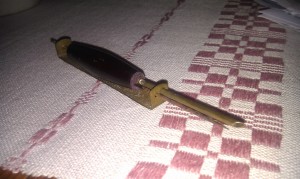I’m a happy user of the N900 – an ageing device. As I recall it, I saw it for the first time in real life at Qt DevDays 2009. So, basically, my phone is older than my laptop, and I’m happy about it.
Yesterday, Nokia removed two zeroes from my old workhorse and announced the N9 – a Qt driven phone. You can find a detailed spec here (thanks Ubuntufreak). What I’m excited about is:
- Unibody. Nokia’s phones have been a bit on the plastic side for my taste in the past.
- Capacitive (i.e. multi-point) touch. This has really been the N900’s weak point recently.
- Proper Linux, i.e. MeeGo. No virtual machine layer as in Android, native binaries on a powerful platform.
- Qt – everywhere!
So, now the only remaining question is – is this a device that will keep me happy for the next three years?


 So, I’ve fought with
So, I’ve fought with 
